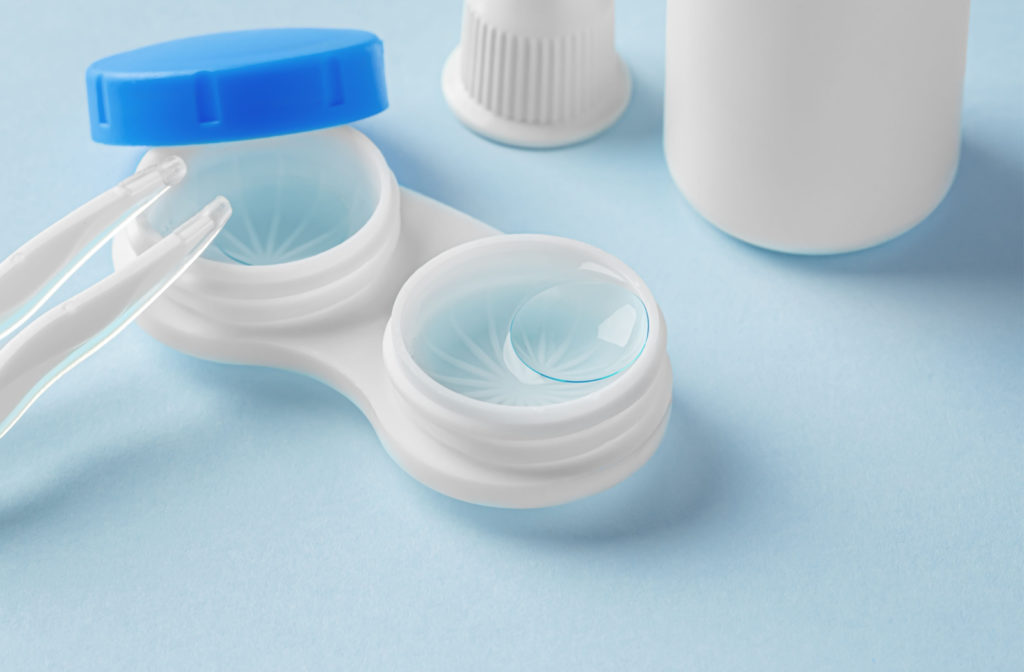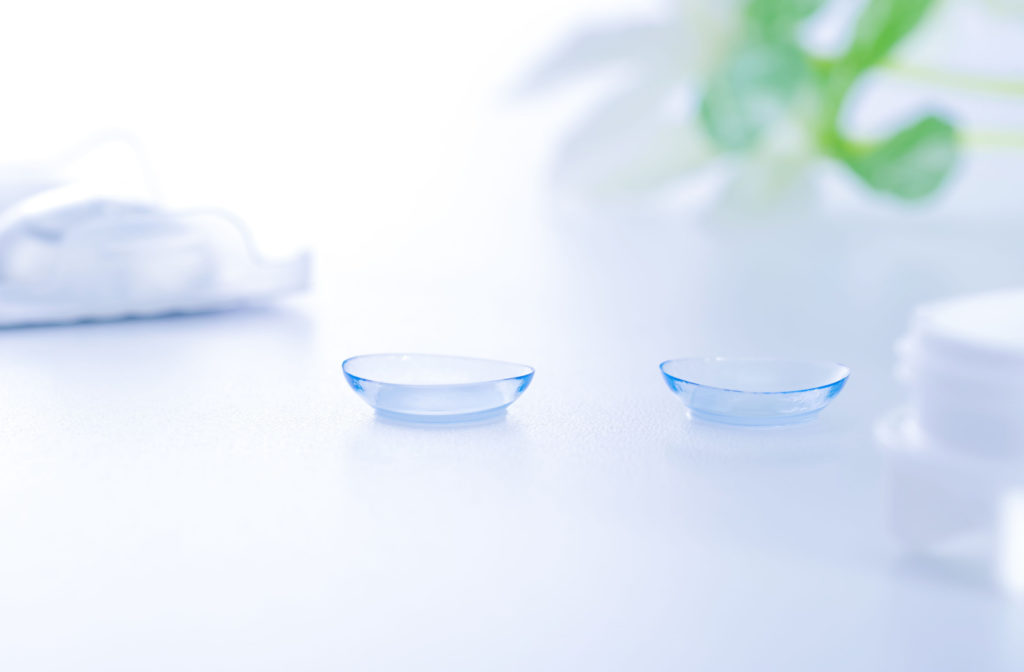Contact lenses make it possible for those with vision problems to see clearly without glasses. However, finding the right lens type, fitting, and maintenance can be challenging.
One of the considerations when choosing contact lenses is their replacement frequency, which can range from daily to monthly. Daily lenses are perfect for convenience and avoiding allergies–you can use them once and throw them away. Biweekly lenses need nightly cleaning but last two weeks, a nice balance of cost and convenience. And monthly lenses are the longest lasting, needing nightly care, and they’re often the most budget-friendly.
It’s important to chat with your eye doctor and book a contact lens fitting appointment to figure out the best fit for you!
Daily Contact Lenses
As the name suggests, daily contact lenses are designed to be used for one day and then thrown away, which means you don’t have to worry about cleaning or disinfecting them.
Daily contact lenses can be a great option for people with allergies, dry eyes, or unpredictable schedules. What’s more, daily lenses come in a variety of materials, like silicone hydrogel or hydrogel, so you can choose what works best for your comfort and breathability needs.
Plus, they’re known to reduce the risk of eye infections due to their disposable nature. There’s no doubt that these lenses offer clear vision, comfort, and convenience, making them a popular choice for many people.
Biweekly Contact Lenses
Biweekly contact lenses are designed to be worn for up to two weeks before you need to replace them. They do require regular cleaning and disinfecting, but they’re less costly than daily lenses.
These lenses come in various types, including toric lenses for those with astigmatism or multifocal lenses for those dealing with presbyopia.
If you’re someone who wants the convenience of frequent use without having to spend too much, these lenses could be just the ticket for you!
Monthly Contact Lenses
Monthly contact lenses are designed to be used for up to a month before they need to be replaced. They require routine cleaning and disinfecting, but they’re typically the most cost-effective option among the three types.
These lenses come in various materials, including rigid gas-permeable and soft lenses, to cater to different needs. If you’re after prolonged use and don’t mind a bit of extra maintenance, monthly lenses could be a good fit for you.

Choosing the Right Contact Lens Type
Choosing the right type of contact lens hinges on several factors like your eye health, lifestyle, and budget.
Contact lenses have come a long way, from colored to soft, hard, toric, and even bifocal lenses. Soft ones are handy because you can toss them after a couple of days, which lowers the chance of infection and ditches the need for cleaning.
They’re comfy and can offer UV protection, but they can pick up particles, chemicals, bacteria, and mold more easily, and they’re not as sturdy as hard or gas-permeable lenses.
Hard lenses are made of a stiff plastic, which lets oxygen get to the cornea. They might correct your vision better than soft lenses, but you’ll need a bit more time to get used to them.
Bifocal lenses are ideal for folks with presbyopia as they correct both distance and near vision. Monovision lenses balance between distance and reading vision, while toric lenses help out individuals with astigmatism.
Orthokeratology is a process that uses special contact lenses to reshape your cornea temporarily, improving your sight. But, it’s not a permanent fix, and laser surgery is often the go-to for a long-term solution.
Choosing the Right Contact Lens for You
Choosing the right contact lenses can improve your vision and quality of life. Daily, biweekly, and monthly contact lenses offer different advantages and disadvantages, from convenience to cost to maintenance.
Daily lenses work well for those prioritizing convenience and hygiene. If you’re using lenses regularly and have a tight budget, biweekly lenses could be more suitable. Monthly lenses are an option for individuals seeking long-term use and who don’t mind the added expense of cleaning and upkeep.
It’s crucial to seek advice from your eye doctor at Total Vision Del Mar before deciding on a lens type. Book an appointment to discover your best fit!
Ultimately, whichever type you choose, always practice proper hygiene and care to enjoy clear vision and healthy eyes.



